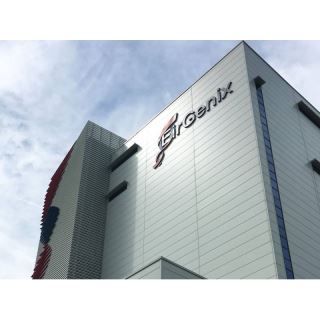- Bone Health
- Immunology
- Hematology
- Respiratory
- Dermatology
- Diabetes
- Gastroenterology
- Neurology
- Oncology
- Ophthalmology
- Rare Disease
- Rheumatology
EirGenix Trastuzumab Biosimilar Candidate Demonstrates Equivalence in HER2-Positive Breast Cancer
A trastuzumab biosimilar candidate demonstrated equivalence to Herceptin in patients with early-stage human epidermal growth factor receptor 2 (HER2)–breast cancer.
Treatment of Human epidermal growth factor receptor 2 (HER)–positive early stage breast cancer with a candidate biosimilar (EG12014) yielded equivalent efficacy and safety in comparison with the reference product, Herceptin, in patients who received concurrent taxane chemotherapy.
In results presented at the 2021 San Antonio Breast Cancer Symposium, investigators said neoadjuvant treatment in combination with anthracycline/paclitaxel–based systemic therapy demonstrated positive outcomes for the EirGenix candidate biosimilar in a multinational phase 3 study.
The study (NCT03433313) was conducted during the COVID-19 pandemic and yet the objectives and functioning of the trial were uncompromised, the investigators said. The last patient to enroll joined the trial in March 2020.
HER2 cancer is fast growing and spreads to the lymph nodes faster than HER2-negative breast cancer. Therefore, amplification, or overexpression, of HER2 in breast cancer is associated with poorer outcomes.
Trastuzumab is a standard therapy for HER2-positive breast cancer, and the investigators said the addition of trastuzumab to neoadjuvant treatment involving anthracyclines and taxane-based therapy has improved pathologic complete response (pCR), event-free survival (EFS), and overall survival (OS).
In this trial, they sought to verify that efficacy and safety between the reference product and EG12014 were equivalent.
In the neoadjuvant phase, investigators enrolled 807 patients and randomized them to 2 cohorts. One arm received epirubicin (90 mg/m2) and cyclophosphamide (600 mg/m2) every 3 weeks for 4 cycles, followed by EG12014. The second arm received the same chemotherapy regimen but with reference trastuzumab instead of the biosimilar candidate.
Trastuzumab in both arms was administered at a loading dose of 8 mg/kg and maintenance dose of 6 mg/kg. Both arms received paclitaxel (175 mg/m2) every 3 weeks for 4 cycles.
Patients subsequently underwent surgery and the trial’s primary end point of pCR was assessed.
In the adjuvant phase of the trial, following surgery, patients received the biosimilar candidate or reference product (loading dose: 8 mg/kg and maintenance dose: 6 mg/kg) to complete a total of 12 months of trastuzumab treatment.
The investigators assessed differences in study treatments and procedures resulting from the pandemic, but said no sensitivity analysis was conducted regarding COVID-19 because virus infections were not expected to affect the primary end point analysis.
End Point Analysis
They said the primary end point, pCR of eradication of tumor from both breast and lymph nodes, was reached with a relative risk ratio (RR) of 0.992 (90% CI, 0.880-1.118) between the 2 treatment cohorts. Secondary end points of tumor eradication from breast and lymph notes also were reached.
The investigators said objective clinical response was similar between the 2 treatment arms and that EFS, OS, safety end points, and toxicity assessments also were similar between arms, supporting equivalence.
They also said incidence of COVID-19 infections was spread evenly between the 2 trial arms and did not cause any discontinuations or deaths. “The influence of the pandemic on this clinical study has been relatively low considering timing and the participating countries,” the investigators concluded.
Patients were enrolled in Belarus, Chile, Colombia, Georgia, India, Russia, South Africa, South Korea, Taiwan, and the Ukraine.
“EG12014 has shown equivalent efficacy to Herceptin in regard to clinical response and has also demonstrated a similar safety profile,” they concluded.
EirGenix, the company developing the biosimilar, is based in New Taipei City, Taiwan, and has partnered with Sandoz for commercialization of EG12014 outside Taiwan and mainland China.
Reference
Grohmann-Izay B, Huang C-S, Dzagnidze G, et al. A phase III, randomized, multicenter, double-blind study to compare efficacy and safety of EG12014 (EirGenix trastuzumab) with Herceptin® as neoadjuvant treatment in combination with anthracycline/paclitaxel-based systemic therapy in patients with HER2-positive early breast cancer - a multinational phase III study conducted during the COVID-19 pandemic. Presented at: SABCS 2021; December 7-10, 2021. Abstract P2-13-17.
Newsletter
Where clinical, regulatory, and economic perspectives converge—sign up for Center for Biosimilars® emails to get expert insights on emerging treatment paradigms, biosimilar policy, and real-world outcomes that shape patient care.

